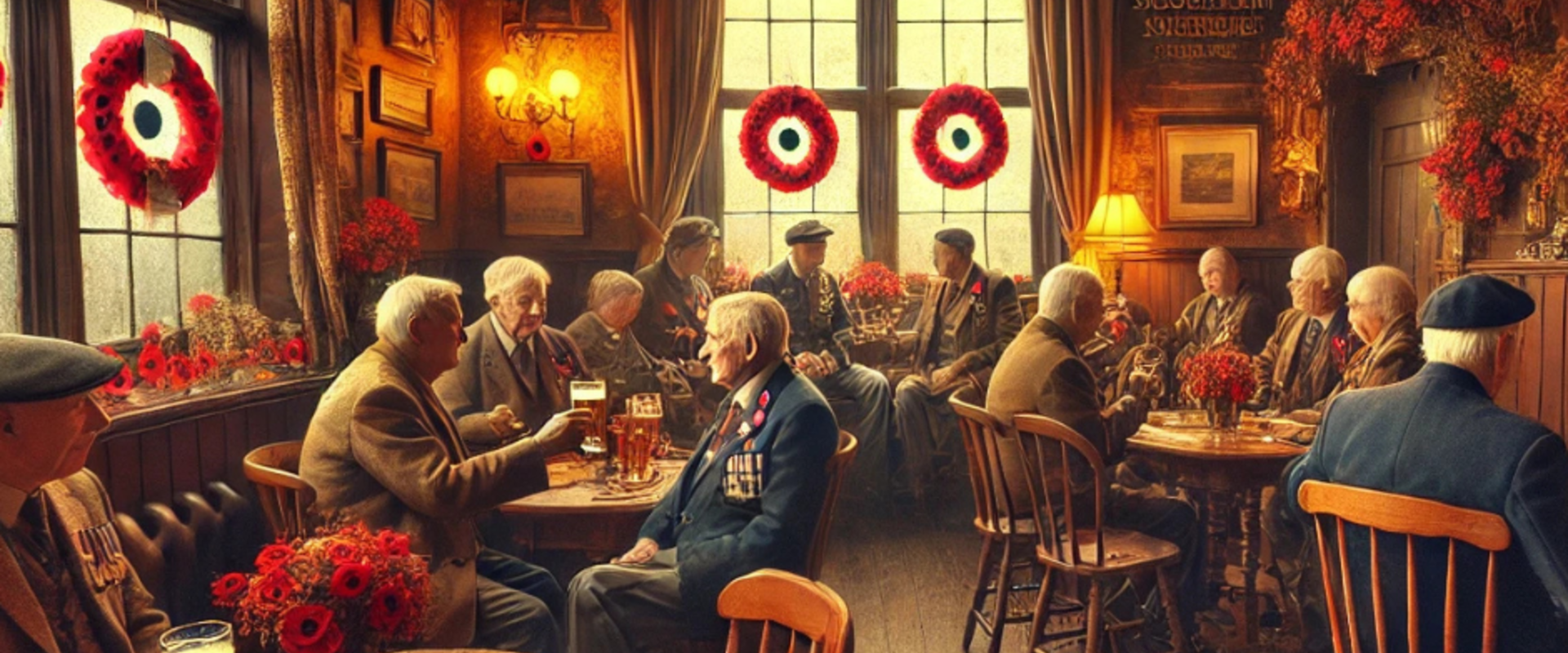Remembrance Sunday, British Pubs, and Their Unseen Role in the World Wars
As Remembrance Sunday approaches, it's worth remembering the unsung role of British pubs in supporting soldiers and their communities through the World Wars. Far more than places for food and drink, these pubs became shelters for the weary, news centres for the concerned, and havens of normalcy amid chaos.

As the UK pauses to remember the service and sacrifice of the armed forces on Remembrance Sunday, we often think of war memorials, wreath-laying ceremonies, and the solemn strains of The Last Post. Yet another British institution played a quietly crucial role in soldiers’ lives during both World Wars: the local pub. Beyond a place for leisure, pubs became an essential social and emotional refuge for soldiers and their communities during these tumultuous times. Here’s how.
The Pub as a Sanctuary and Gathering Place.
When soldiers were on leave or returned home, the pub was often one of their first stops. The familiarity and comfort provided a brief respite from warfare’s physical and emotional toll. In the pub, men could unwind and find solace in the company of those who shared or understood their experiences, making it a vital space for support and healing.
The role of pubs during wartime extended beyond the soldiers. On the home front, the pub was an information hub for families and communities eager for news from the front lines. As letters from soldiers arrived, pubs would often become informal reading rooms where people shared updates about loved ones. News of battles, casualties, or promotions would spread, and these shared moments allowed the community to mourn, celebrate, or find hope together.
World War II (1939-1945) sharpened the pub’s community role, as bombings and evacuations turned daily life upside down. With men away at war, pubs became a place of resilience and morale for those left behind. Some pub landlords even installed blackout curtains to allow patrons to gather safely without risking exposure to enemy planes overhead.
Rationing, War Effort, and Pub Culture
The strains of wartime rationing didn’t spare pubs, but they adapted creatively. Alcohol production and distribution were limited to preserve resources for the war effort, beer became weaker, and pub menus were scaled back. Despite these challenges, pubs continued to serve as critical spaces for relaxation and camaraderie.
During World War II, the Ministry of Food issued a “pub meat pie” recipe that landlords could use to create a nourishing, ration-friendly meal for patrons. These wartime pies often included root vegetables like carrots and potatoes, reflecting the spirit of “making do” that characterized British resilience. Landlords and regulars bonded over these shared, humble meals, and the pub experience became one of mutual support and creativity in difficult times.
Pubs as “Home” for Returning Soldiers
For many soldiers, the war ended long after the battles ceased. The physical and emotional scars lingered, and returning to civilian life wasn’t always easy. Local pubs, where camaraderie and understanding ran deep, were often the first and most comforting places veterans turned to as they readjusted to life at home.
After both wars, some pubs set aside special tables or areas for veterans, and gatherings were held to honour those who had served. These traditions laid the groundwork for Remembrance Sunday gatherings that still take place in pubs across the UK today. To this day, pubs across the UK often host local Remembrance Sunday gatherings, where veterans, families, and communities come together to commemorate those lost and reflect on the impact of war.
As Remembrance Sunday approaches, it’s worth remembering the unsung role of British pubs in supporting soldiers and their communities through the World Wars. Far more than places for food and drink, these pubs became shelters for the weary, news centres for the concerned, and havens of normalcy amid chaos. Today, they are informal memorials — places where the past is alive, stories are shared, and Remembrance is woven into the fabric of community life.
























